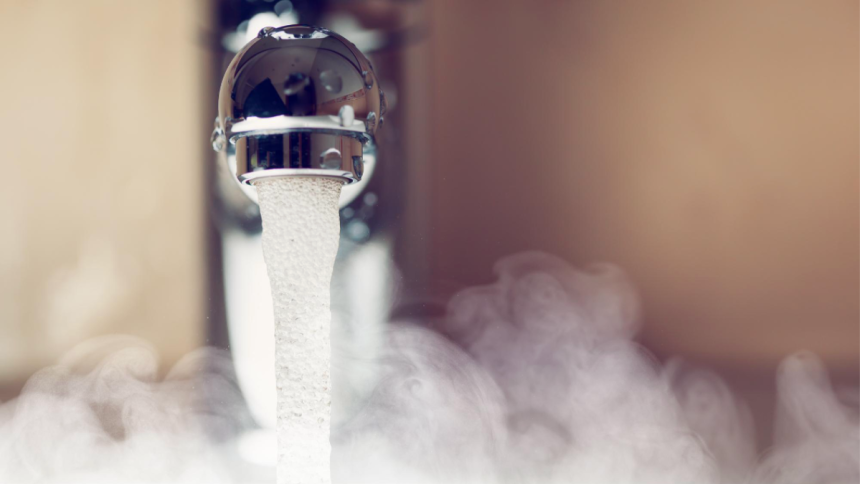In recent years, utilities have experienced a noticeable upward trend, with the cost of heating water being no exception. Households across Australia are grappling with the financial implications of keeping their hot water systems running efficiently. Given that water heating can account for up to 30% of a home’s energy consumption, reducing related expenses has become crucial for maintaining a manageable household budget. But it’s not just financial motives driving the push to economise. Reducing hot water usage also lessens our environmental footprint, contributing positively to sustainable practices and energy conservation.
This article aims to shed light on effective strategies for reducing the costs associated with hot water systems. From understanding the intricacies of various water heating methods to exploring alternatives such as solar and heat pump systems, as well as adopting energy-efficient practices, there’s a wealth of knowledge waiting to be tapped into that can lead to substantial savings and environmental benefits.
Understanding Your Hot Water System
To effectively manage and reduce expenses, it’s essential to first understand the type of hot water system currently in use. The most common systems include storage tank water heaters, tankless (or instantaneous) systems, and solar water heaters, among others.
1. Storage Tank Water Heaters: These are prevalent in many households due to their traditional design and reliable operation. They store a specific volume of water, which is heated and kept ready for use. However, they can be less energy-efficient due to standby heat loss, where heat escapes from the tank even when not in use.
2. Tankless Water Heaters: These systems heat water on demand, eliminating the cost of keeping several litres of water hot at all times. Although more expensive upfront, they often prove to be more energy-efficient in the long run. However, their efficiency can be affected by the household’s peak demand, occasionally requiring multiple units for larger homes.
3. Solar Water Heaters: By leveraging solar energy, these systems substantially reduce reliance on grid electricity or fossil fuels. While initial installation costs can be significant, the long-term savings and environmental benefits are noteworthy.
4. Heat Pump Water Heaters: These systems are highly efficient, using electricity to move heat from one place to another, rather than generating heat directly. Their performance is affected by environmental temperatures, typically performing optimally in warmer climates.
Each system has its pros and cons in terms of operating costs. Recognising the signs of an inefficient or outdated system is vital. For example, systems that take too long to heat water, produce inconsistent water temperatures, or have increased operating noise might fail in efficiency. Addressing these issues promptly can prevent further cost escalations.
Moreover, routine maintenance is pivotal in ensuring a hot water system runs efficiently. Descaling tankless heaters, checking the anode rod in storage tanks, and ensuring that solar panels are unobstructed are just a few maintenance tasks that can enhance longevity and efficiency, keeping energy consumption—and therefore costs—under control.
Insulation and Energy Efficiency Improvements
Proper insulation is a simple yet highly effective way to retain heat and reduce energy loss in hot water systems. Insulating hot water pipes prevents heat loss, ensuring water arrives hotter at the tap, reducing the need to run the water—and consequently the heater—longer than necessary.
Additionally, thermal blankets for storage water heater tanks can significantly reduce heat loss, especially in colder climates or unheated spaces like garages. These ‘jackets’ trap heat within the tank, like putting a coat on a chilly night—all without a hefty price tag.
Adjusting the hot water temperature settings is another straightforward method to lower energy expenditure. By setting the thermostat at a comfortable yet efficient temperature, typically around 60 degrees Celsius, households can save on energy bills. Lowering the temperature setting can also reduce standby losses and scalding risk.
Regular maintenance, as noted before, complements these physical improvements. Flushing a water heater biannually, checking for leaks, and inspecting pressure relief valves contribute to an efficient system by preventing sediment build-up, which can insulate the water from the heating element, making it work overtime.

Implementing Smart Water Usage Habits
Incorporating smarter habits into daily routines plays an integral part in lessening hot water expenses. Simple lifestyle changes can have a significant impact when consistently implemented.
One effective technique is shortening shower time. Long showers not only waste water but also energy used in heating it. Using a shower timer or installing a water-saving showerhead can effectively manage this, conserving precious resources without compromising comfort.
Opting for cold water settings in laundry and dishwashing is another stellar way to cut costs. Many modern detergents are designed to work just as well in cold water as they do in hot, making this a savvy choice for both energy savings and garment longevity.
Introducing low-flow fixtures throughout the home, from showerheads to taps, helps to reduce water usage. These fixtures are designed to use less water without sacrificing performance, ensuring a gentle yet effective flow that conserves energy and resources.
Developing a routine for identifying and fixing leaks is crucial. Though seemingly innocuous, a dripping tap or showerhead can lead to substantial waste over time. Fixing leaks promptly prevents wastage and reduces strain on the hot water system, further driving down costs.
Investing in Energy-Efficient Appliances and Fixtures
One pivotal long-term strategy involves upgrading to energy-efficient appliances and fixtures. Energy-efficient water heaters, for example, have been designed to deliver the same level of service while consuming significantly less energy. Whether it’s a high-efficiency storage tank or a cutting-edge tankless model, the initial investment often pays for itself through reduced utility bills over time.
Looking for ENERGY STAR-rated appliances is also a wise move. These appliances meet regulated energy efficiency guidelines, ensuring optimum performance with minimal energy wastage. For instance, an ENERGY STAR-rated water heater or washing machine uses less energy, directly reducing household expenses.
Equally important is selecting appliances that are appropriately sized for your household needs. For instance, an oversized hot water tank continually heats more water than necessary, driving up energy costs. Conversely, an undersized system may struggle to meet demand, leading to inefficiencies.
Many governments and organisations offer incentives, rebates, or tax credits for households upgrading to energy-efficient systems. These financial perks can significantly offset the initial costs of new installations, making the transition to energy efficiency more accessible to all.
Exploring Alternative Heating Methods
Alternative heating methods present another outstanding opportunity for reducing hot water expenses. Solar water heating systems harness the abundant energy of the sun, offering substantial reductions in utility bills. Despite the high initial investment, over time, these systems provide excellent savings, especially in sun-rich regions.
Geothermal water heating systems use the earth’s consistent underground temperatures to heat water. This method is highly efficient but also depends on specific geographical conditions, making it more suitable for some areas than others.
Heat pump water heaters, as discussed, are highly energy-efficient. By transferring rather than generating heat, they use less electricity, which makes them an appealing choice in suitable climates.
Hybrid water heating systems, which combine different types of technology such as heat pumps and traditional elements, offer flexibility and potential cost savings. These systems can adjust to other energy sources depending on availability and cost efficiency, optimising energy use.
Conclusion
Reducing expenses associated with hot water systems involves a multifaceted approach that benefits the wallet and the environment. By understanding their current system, improving insulation, adopting smart water usage habits, investing in energy-efficient appliances, and exploring alternative heating methods, households can significantly lower their utility bills.
The benefits certainly extend beyond financial savings. Enhancing energy efficiency within the home contributes to conserving natural resources and promoting a sustainable lifestyle. Everyone is invited to critically assess their current water systems and usage habits, implement strategic changes, and savour the long-term rewards of reduced expenses and environmental impact. Find out how to save on hot water systems and embark on a journey toward more sustainable living, ensuring that both financial savings and environmental stewardship become integral aspects of everyday life.
Lynn Martelli is an editor at Readability. She received her MFA in Creative Writing from Antioch University and has worked as an editor for over 10 years. Lynn has edited a wide variety of books, including fiction, non-fiction, memoirs, and more. In her free time, Lynn enjoys reading, writing, and spending time with her family and friends.















